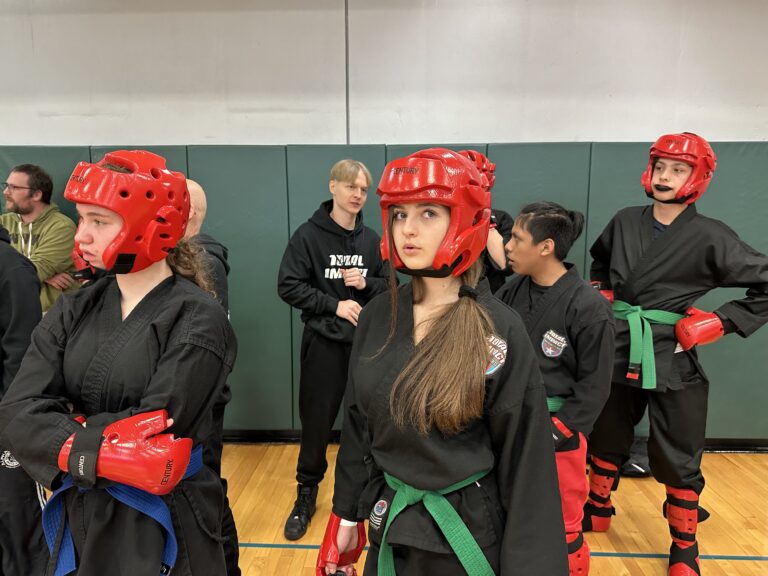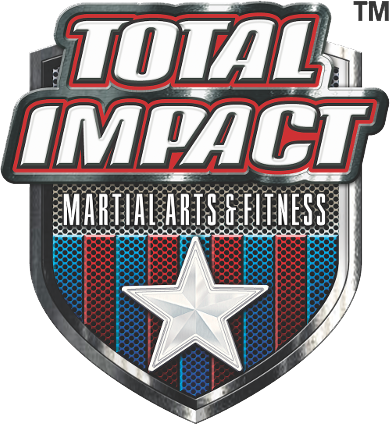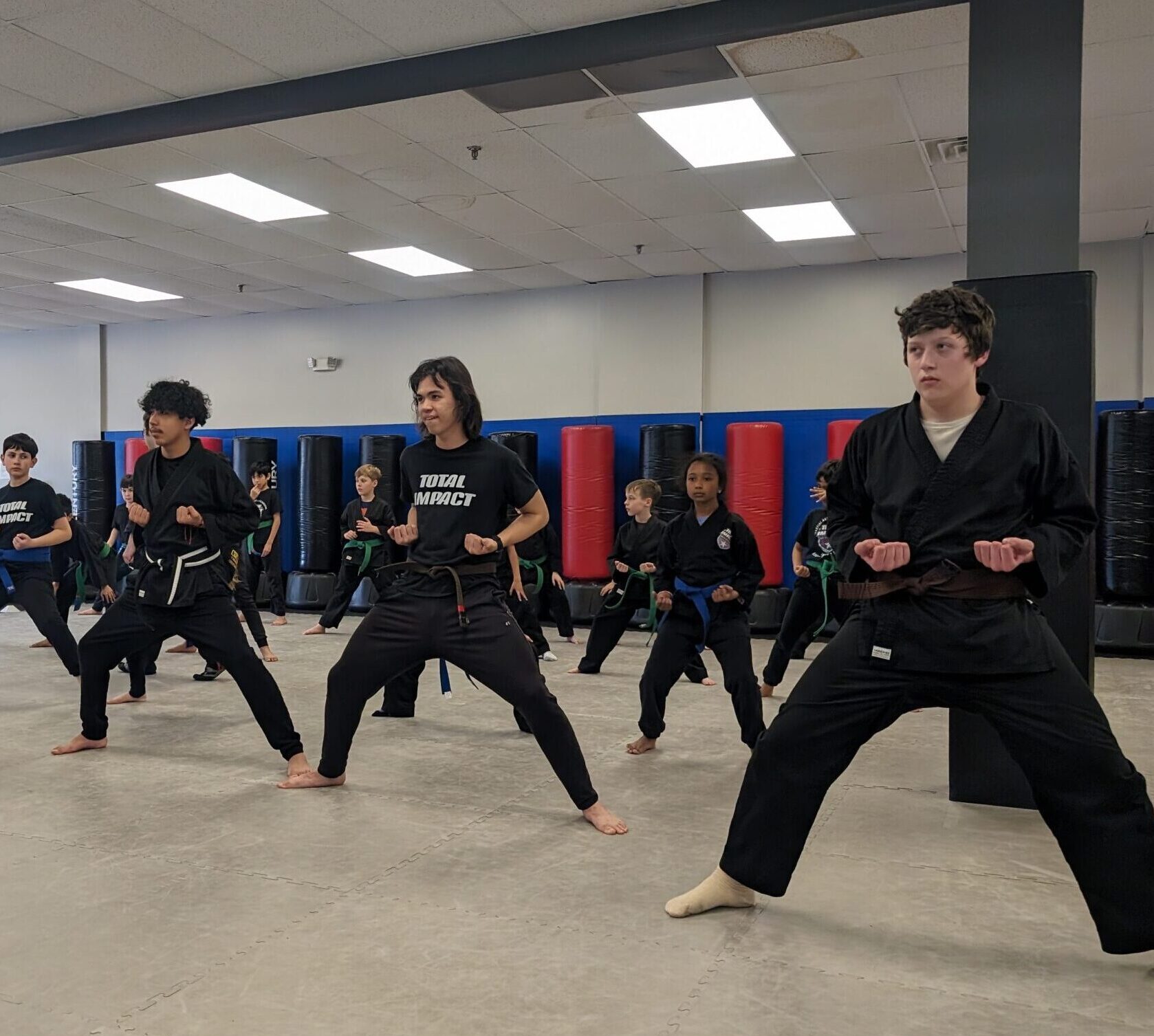Martial arts training is an exciting, physically engaging activity that benefits people of all ages and abilities. Karate, MMA, and kickboxing are incredible workouts that can help you or your kids develop discipline, focus, strength, and self-confidence.
Summer is right around the corner and most of us are either looking for ways to stay fit, or looking for programs to keep our kids busy. Martial arts is a great way to stay active in the summertime! At Total Impact, we prioritize the safety and well-being of our students. Our professional instructors take measures to ensure a safe and injury-free training environment.
While we’re all human and injuries can occur, they are usually minor and can be addressed with proper care. By enrolling yourself, your teen, or little one in mixed martial arts, you are giving the opportunity to learn important life skills while staying active and leading a healthy lifestyle. Did we mention our classes are also a BLAST? It can’t get any better than this…
Shihan Brian is here with Total Impact’s guide to avoiding injuries at the dojo.
Common Martial Arts Injuries
The injuries that may occur during martial arts training partially depend on the martial arts you partake in; the most common injuries are usually:
- sprains
- strains
- cuts
- bruises
- broken bones
But please have peace of mind knowing that Total impact Martial Arts hardly EVER sees our students get injured beyond a bruise to the knee or a minor scrape. We make sure our instructors are professionally trained on the proper techniques, so our students learn their skills as safely and responsibly as possible.
Tips for Preventing Injuries During Martial Arts Training
Accidents happen no matter your age, but we can all do our best to reduce the risk of injury with a few precautions!
1. Physical Examination
Before signing up for physically intense sports like martial arts, we recommend getting a clinical examination done by your primary physician. This helps identify any conditions that require care, and whether you or your child are fit to pursue the training.
2. Warm-Up with Stretching
Begin every training session with a proper warm-up routine. This should include light cardiovascular exercises, such as jogging or jumping jacks, to increase blood flow and warm up the muscles. You are more prone to injury if you work with cold muscles. That’s why we take time to stretch before every class!
3. Technique and Form
Master the correct techniques and form for each martial arts movement. Proper execution reduces the risk of strain or injury and maximizes the effectiveness of your training. When learning new techniques, take things slow and practice at half speed. Be sure to have coaches spotting you to intervene immediately in case of an accident. Additionally, understand which body parts are most likely to get injured during training, and ensure proper form to avoid injury.
4. Gradual Progression
Progress gradually in your training. Start with basic techniques and increase the complexity and intensity as your skills and fitness level improve. Pushing too hard too soon can lead to injuries. Do not push too hard when returning from a break. Gradually build up your stamina and intensity level to prevent the risk of injuries. That’s why we have different levels and belt ranks to our classes, a new student won’t be starting out learning Advanced techniques!
5. Protective Gear
Always wear appropriate protective gear during training and competitions – mouthguards, helmets, gloves, shin guards, and groin protectors. Make sure your gear fits properly and is in good condition. Choosing footwear is also very important. Most times, being barefoot offers more stability than wearing socks or other footwear. Shihan Brian makes sure all students come to class with the proper sparring gear to protect themselves.

6. Use the Right Equipment
The various types of martial arts require different equipment to work with. When practicing or performing, ensure you have the right equipment and are familiar with what you are using, so you do not risk injuring yourself.
7. Be Prepared
While we work our utmost to avoid them, injuries cannot be eliminated. We ensure that all of our trainers are well-versed in first aid and can administer it effectively. Our dojo has bandages and ice packs on hand in case something happens. We will always call a parent if something is serious.
8. Rest and Recovery
Allow your body sufficient time to rest and recover between training sessions. Overtraining can lead to fatigue and increase the risk of injuries. Listen to your body and take rest days as needed. We recommend students rest a day between classes to give your body time to catch up!
9. Hydration & Nutrition
Stay hydrated before, during, and after training. Dehydration can affect your performance and increase the risk of cramps and muscle strains. Also maintain a balanced diet to provide your body with the necessary nutrients for optimal performance and recovery. Include a combination of carbohydrates, proteins, and healthy fats. Shihan Brian shares tips in class for a healthy lifestyle outside of the dojo!
Train for Success at Total Impact Martial Arts!
These preventive measures can significantly reduce the risk of martial arts injuries. Remember, safety must be a top priority! Proper technique, conditioning, and awareness are essential for injury-free training. By taking these steps, you can minimize your risk of injury and have a safe, enjoyable training experience.
We have rules clearly listed in our dojo for proper etiquette so every student knows that the dojo is a serious place where we must follow rules and respect one another. Martial arts weapons are not toys. By taking the time to read through these tips for yourself or your child, we hope this improves your experience at our dojo!

